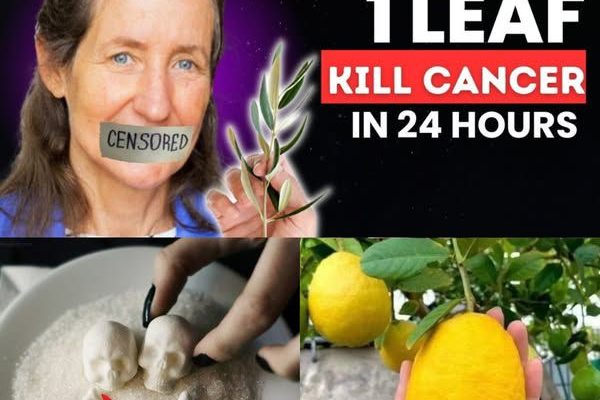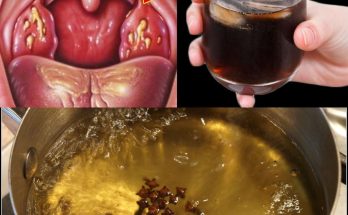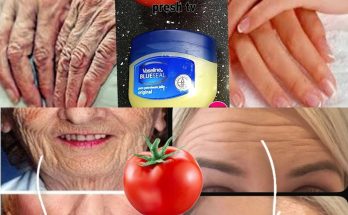Pharmaceutical Industry Criticism: A Closer Look at Cancer Treatment Approaches
Barbara O’Neill, a well-known natural health advocate, has long raised concerns about the pharmaceutical industry’s approach to cancer treatment. She argues that the industry often focuses on symptom management rather than addressing the root causes of the disease. In her discussions, she highlights the limitations of conventional cancer treatments and advocates for a more holistic approach to healing. One particular story that Barbara shares is that of a woman who faced a recurrence of cancer after undergoing standard medical treatments. This case, she emphasizes, is a poignant reminder of how emotional and physical impacts of the disease are frequently overlooked in mainstream medicine.
Barbara’s critique also revolves around the ongoing increase in cancer rates worldwide. According to the Global Cancer Statistics Report 2024 published by the American Cancer Society, the prevalence of cancer has seen a dramatic rise globally. This alarming increase highlights the urgent need to not only treat cancer but to understand and address the underlying causes of the disease.
Understanding the Favorable Environment for Cancer Growth
Barbara stresses the importance of understanding the environment in which cancer thrives. She explains that cancer cells have unique metabolic characteristics that allow them to grow and spread. These cells require an environment that is rich in glucose, lacking oxygen, and acidic in nature
High Glucose Levels:
Cancer cells consume glucose at a rate 15 times greater than normal cells. This high glucose demand fuels their rapid growth, making dietary changes that reduce sugar intake an important strategy in cancer prevention.
Oxygen Deficiency:
Cancer cells tend to ferment glucose even in the presence of oxygen—a process known as the Warburg effect. This ability allows cancer cells to thrive in environments where normal cells would not survive, further complicating treatment strategies.
Acidic Environment:
The accumulation of lactic acid around cancer cells creates an acidic environment that promotes cancer cell growth and metastasis. This acidic milieu not only supports the proliferation of cancer cells but also hinders the body’s natural defense mechanisms.
Olive Leaf Extract: A Powerful Natural Cancer Remedy
One of Barbara’s key recommendations for fighting cancer naturally is the use of olive leaf extract. She introduces olive leaves as a potent natural remedy, explaining that they contain powerful compounds with antioxidant, antifungal, and antimicrobial properties. Olive leaf extract has been shown to disrupt the formation of new blood vessels that supply tumors, effectively starving cancer cells of the nutrients they need to grow. By inhibiting angiogenesis (the formation of blood vessels), olive leaf extract targets one of the key mechanisms that enable cancer to thrive.
Diet as a Cancer-Fighting Tool
Barbara emphasizes the importance of a well-rounded, anti-cancer diet in creating an environment where cancer is less likely to develop. She suggests several foods that are particularly beneficial in the fight against cancer, noting that certain fruits, vegetables, and fats have specific properties that can reduce cancer risk and improve overall health.
Tomatoes and Olive Oil:
Barbara highlights the benefits of cooked tomatoes, which release lycopene, a powerful antioxidant that has been shown to reduce inflammation and support prostate health. When paired with olive oil, a healthy fat, the body’s ability to absorb lycopene is enhanced, providing a double boost for cancer prevention.
Legumes:
Rich in protein and low in carbohydrates, legumes such as chickpeas and lentils are excellent for stabilizing blood glucose levels. This is particularly important because excess glucose in the bloodstream can fuel cancer cell growth.
Lemons:
Despite their acidic taste, lemons have an alkalizing effect on the body due to their high mineral content. Barbara advocates for regular consumption of lemons as part of an anti-cancer diet, as they help to neutralize acidity and promote an alkaline environment in the body, which is less conducive to cancer growth.
Dark Leafy Greens:
Vegetables like spinach and kale are rich in antioxidants and chlorophyll, both of which aid in detoxification and reduce oxidative stress, a major contributor to cancer development.
Nuts and Seeds:
Almonds, walnuts, and pumpkin seeds help balance the body’s pH and are packed with nutrients that support overall health, including essential fats, fiber, and protein.
Caffeine:
Regular caffeine consumption may contribute to increased acidity in the body and disrupt normal hormone regulation, both of which may contribute to cancer development.
Historical Context: Dr. Otto Warburg’s Groundbreaking Discovery
Barbara frequently references the groundbreaking work of Dr. Otto Warburg, who in 1946 discovered the unique metabolic characteristics of cancer cells. His research showed that cancer cells thrive in environments that lack oxygen and are high in glucose. However, despite Warburg’s significant findings, these insights have not been widely adopted by the pharmaceutical industry or incorporated into standard cancer treatment protocols.
The Power of Personal Choice and Natural Remedies
One of the most important messages Barbara O’Neill advocates is the idea of personal choice in cancer treatment. She supports individuals in exploring natural remedies, adopting a healthy diet, and making informed decisions to create an environment in which cancer cannot thrive. Through education and awareness, Barbara believes that individuals can take control of their health and make choices that support long-term wellness.
Conclusion: The Need for Education and Awareness in the Fight Against Cancer
In conclusion, Barbara O’Neill emphasizes the importance of education and awareness about alternative treatments and natural remedies in the fight against cancer. By understanding the root causes of cancer and creating a body environment that is less hospitable to cancer cells, individuals can reduce their risk of developing cancer and, in some cases, even reverse the disease. Embracing the healing power of nature, making thoughtful dietary choices, and seeking natural remedies can all play a crucial role in preventing and fighting cancer. Barbara advocates for a more holistic, individualized approach to cancer care that prioritizes healing the body from the inside out.



